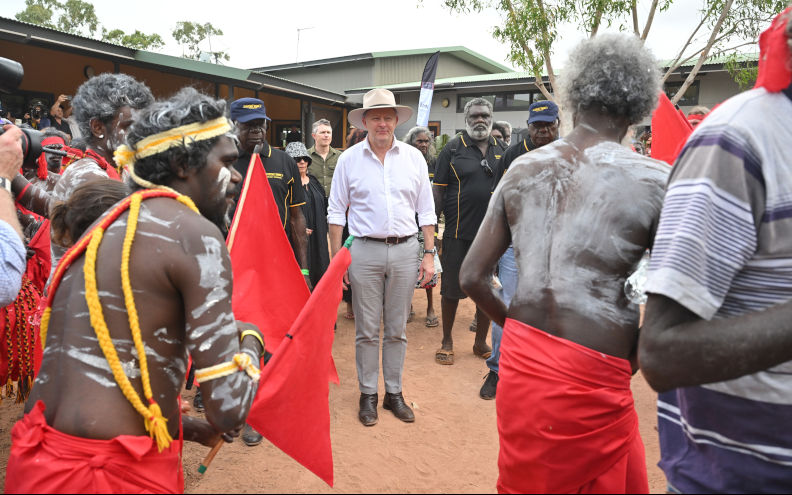On fairness, our futures seem grim under Albo
August 11, 2024
Has the ALP read the Voice referendum loss as indicating limited voter support for First Nations rights, with an election soon?
The Voice Referendum failed, and with that failure First Nations Australians lost the hopes embodied in their proposed plans to add them to the constitution with power to develop policies that dealt with issues affecting First Nations.
The loss was substantial.
Many hoped for changes that were not likely to be addressed except via their participation in decision making. Future options have not been addressed since the Voice loss, so the recent Garma Festival generated much interest.
The PM Albanese was the major speaker at the Garma event, and was expected to show interesting Government policy shifts, address the Voice referendum failure, and explore ways to achieve structural shared power. However, he offered very different options, proposing some limited economic set of ‘reforms’. So rather than the PM announcing new ways of First Nations sharing national resources fairly, in ways that would enable fairer standards of shared living, First Nations were offered business market-based income options.
The options would involve funding to establish businesses as part of efforts to reduce dependency on overseas imports. The expected profits would thus allow Aboriginal rural communities to create higher income jobs to meet the standards of living considered as ‘normal'.
Speaking at Garma, a yearly Indigenous festival on Yolgnu land in north-east Arnhem Land, the Prime Minister announced a new First Nations Economic Partnership, including $20 million in funding for a new tertiary education centre called the Garma Institute.
“We have to make a new path and we have to walk it together,” Albanese said.
‘Prime Minister Anthony Albanese then announced a new economic focus for the Government’s Indigenous affairs policy, almost one year on from the defeat of the Voice to Parliament referendum.
The newly announced First Nations Economic Partnership will realign the government’s focus towards economic empowerment and creating jobs. It is also designed to expand the rollout of renewables and connect investors, with remote communities and workers. “This is about good jobs that change lives and strengthen communities,” Albanese said (9 News Online).
‘PM discards commitment to set up Makarrata body despite millions in funding’, was the headline in the ABC.
Another quote from Katie Kiss, the newly appointed Aboriginal and Torres Strait Islander justice commissioner, told the ABC a Makarrata commission was “necessary”.
“Makarrata is about coming together, but also about the rules of engagement and how we work in partnership to achieve the practical outcomes that people keep saying they want to achieve,” she said.
“I think while it’s all nice and fuzzy language about coming together, it needs to be much more than that.”
The above quotes suggest the ALP Government is seriously limiting its involvement in future Aboriginal reforms to relatively low level inappropriate options. Given that more radical Labor Party voters would seem less likely to support the expansions of market profits as a basis for equity, this is an odd shift for the Caucus. The many concerns and long-term inequities we know exist for Australia’s original inhabitants’ lives means such a limited shift seems incongruous.
Has the ALP read the referendum loss as indicating limited voter support for First Nations rights, with an election soon?
If so, do our futures seem grim for fairness under Albo?

